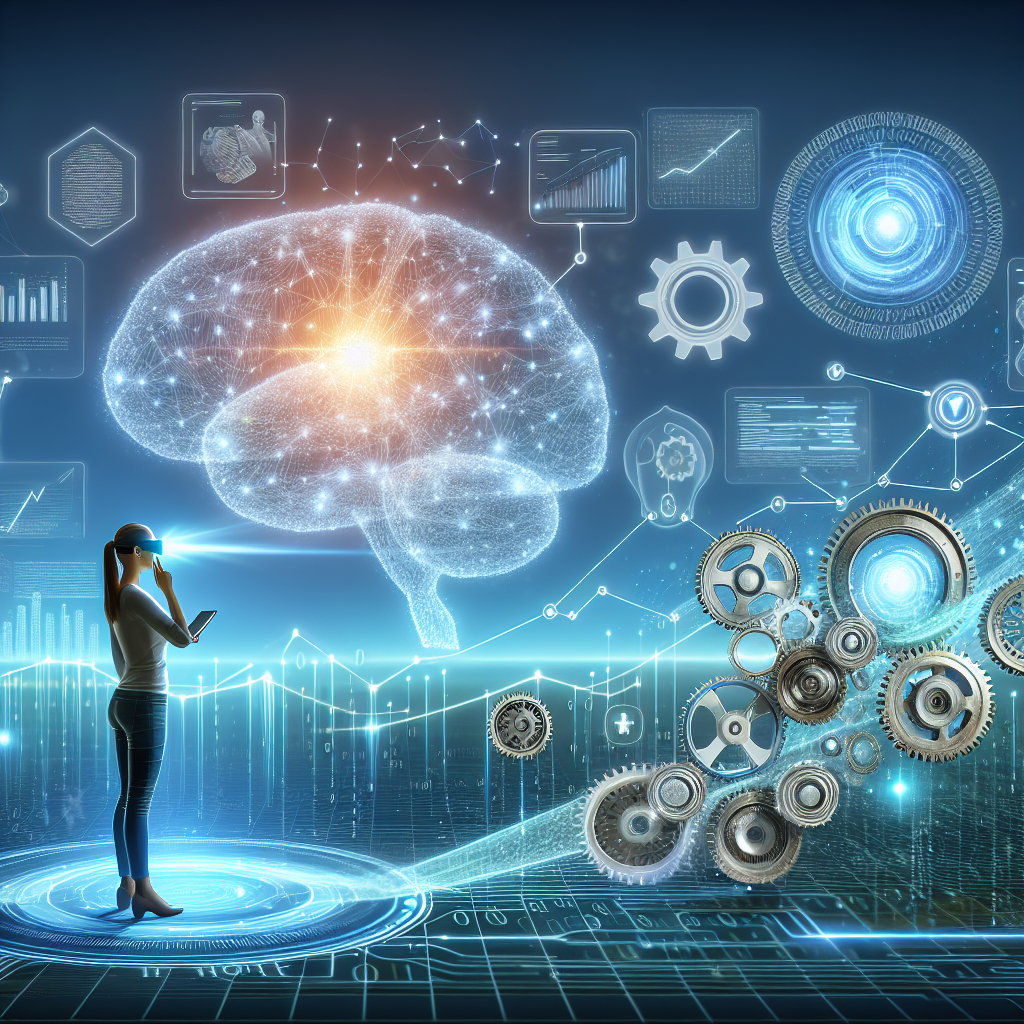In today’s digital age, search engine optimization (SEO) is crucial for any business looking to maximize its online presence and drive traffic to its website. However, with the ever-changing algorithms of search engines like Google, optimizing SEO can be a complex and time-consuming process. That’s where artificial intelligence (AI) comes in.
AI technology has revolutionized the way marketers approach SEO, making it easier to analyze data, identify trends, and make data-driven decisions. By leveraging AI tools and strategies, marketers can optimize their SEO efforts and stay ahead of the competition. In this article, we will explore some of the best strategies for optimizing SEO with AI and how marketers can use these tools to improve their search engine rankings.
1. Content Optimization
One of the key aspects of SEO is creating high-quality, relevant content that is optimized for search engines. AI can help marketers optimize their content by analyzing keywords, identifying trends, and suggesting improvements. AI-powered tools like MarketMuse and BrightEdge can analyze content and provide recommendations for keyword usage, content structure, and other factors that can improve search engine rankings.
By using AI to optimize content, marketers can ensure that their website ranks higher in search engine results pages (SERPs) and attracts more organic traffic. AI tools can also help marketers identify gaps in their content strategy and suggest topics that are popular with their target audience.
2. Voice Search Optimization
With the rise of voice search technology like Siri, Alexa, and Google Assistant, optimizing for voice search has become increasingly important for marketers. AI can help marketers optimize their content for voice search by analyzing spoken queries, identifying long-tail keywords, and creating content that is tailored to the way people speak.
By using AI-powered tools like AnswerThePublic and SEMrush, marketers can identify common voice search queries and create content that answers these questions. Marketers can also use AI to optimize their website for featured snippets, which are often used in voice search results.
3. Image Optimization
Optimizing images for search engines is another important aspect of SEO that can be enhanced with AI technology. AI-powered tools like Clarifai and TinEye can analyze images and provide recommendations for optimizing alt text, file names, and other factors that can improve image search rankings.
By using AI to optimize images, marketers can improve their website’s visibility in image search results and attract more organic traffic. AI tools can also help marketers identify opportunities to use images to enhance their content and engage their audience.
4. Link Building
Link building is a key component of SEO that can be time-consuming and challenging for marketers. AI can help marketers streamline the link building process by analyzing backlinks, identifying opportunities for link building, and suggesting strategies for building high-quality links.
AI-powered tools like Moz and Ahrefs can analyze backlink profiles and provide recommendations for improving link quality and relevance. By using AI to optimize link building, marketers can improve their website’s authority and credibility, which can help improve search engine rankings.
5. Performance Monitoring
Monitoring the performance of SEO efforts is crucial for optimizing results and making data-driven decisions. AI can help marketers analyze data, track key performance indicators (KPIs), and identify trends that can inform future strategies.
AI-powered tools like Google Analytics and SEMrush can provide insights into website performance, traffic sources, and user behavior. By using AI to monitor performance, marketers can identify areas for improvement, track the success of their SEO efforts, and make adjustments as needed.
FAQs
Q: How can AI help with keyword research?
A: AI-powered tools can analyze search trends, identify popular keywords, and suggest relevant long-tail keywords that can improve search engine rankings. By using AI for keyword research, marketers can optimize their content for search engines and attract more organic traffic.
Q: Can AI help with local SEO?
A: Yes, AI can help marketers optimize their website for local search by analyzing local search trends, identifying local keywords, and suggesting strategies for improving local SEO. AI-powered tools like BrightLocal and Moz Local can help marketers improve their website’s visibility in local search results.
Q: How can AI improve website performance?
A: AI can help marketers analyze website performance, track key performance indicators (KPIs), and identify areas for improvement. By using AI to monitor website performance, marketers can make data-driven decisions, optimize their SEO efforts, and improve user experience.
In conclusion, AI technology has revolutionized the way marketers approach SEO, making it easier to analyze data, identify trends, and make data-driven decisions. By leveraging AI tools and strategies, marketers can optimize their SEO efforts and improve their search engine rankings. From content optimization to performance monitoring, AI can help marketers streamline their SEO efforts and stay ahead of the competition. By incorporating AI into their SEO strategy, marketers can improve their website’s visibility, attract more organic traffic, and drive business growth.

